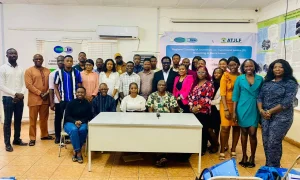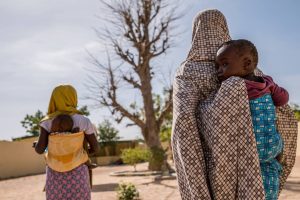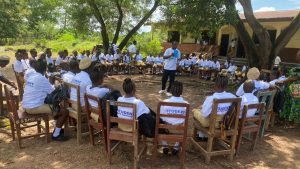While the conversations at the Forum were insightful, providing a crucial space for reflecting on the evolving challenges and opportunities within Africa’s transitional justice landscape, efforts like these must go beyond discussions to drive tangible, long-term change on the ground. Often, state actors are either unaware of or, when aware, uninterested in the transformative power of integrating transitional justice principles into educational curricula and frameworks, and the role this can play in fostering long-term stability and societal healing. This implies that governments and policymakers also need to be educated on the necessity of mainstreaming peace education into national curricula, ensuring that citizens, both young and old, are equipped with the knowledge and skills to contribute to transitional justice processes and sustainable peace. State actors and policymakers must be at the forefront of this conversation, as the gap highlights the need for stronger commitments from stakeholders and key players to recognize the role of education in advancing peace and justice, as well as the importance of peace education. One recommendation from the Forum for civil society actors is the need to actively engage in advocacy for states to institutionalize peace education by working with relevant state actors to ensure it is sustainably integrated into both formal and informal education systems. As a funder in the transitional justice space, ATJLF continues to promote this approach through its grant-making efforts on the continent. ATJLF currently supports transformative initiatives in northeast Nigeria, Sierra Leone, Liberia, Mali, Cote d’Ivoire, and the Gambia aimed at incorporating transitional justice and peace education into course modules at tertiary institutions, school curricula, and traditional education systems. This approach is vital to ensuring that transitional justice education interventions and programs are both sustainable and effective. Furthermore, integrating transitional justice principles into school curricula and education systems can foster understanding, empower communities, and support civic engagement—crucial steps in healing divided societies and building lasting peace.
Speakers and participants at the Forum highlighted political will as an indispensable factor for the success of transitional justice efforts, particularly in relation to the promotion of peace education. Unfortunately, despite its crucial role, the lack of political will continues to be a major obstacle to transitional justice in Africa. This challenge is further compounded in the context of transitional justice and peace education. In some cases, such as Nigeria, states have gone as far as removing the history of conflicts from their educational frameworks, thereby missing the opportunity to harness the transformative power that confronting these ‘uncomfortable’ pasts can offer. This lack of acknowledgment which is often further worsened by a lack of accountability usually creates a state of negative peace where the underlying issues fueling conflict remain unresolved. Conversations at the Forum also identified inclusivity as a key factor in enhancing the effectiveness of transitional justice education in Africa. This perspective accurately reflects the approach that peace education in Africa should adopt. Given the diversity of our societies, peacebuilding education must adopt a multi-faceted approach. It must be taught within formal education systems, as well as informally in local communities and other social spaces—ensuring no one is left behind regardless of age, gender, and status. The adoption of contemporary approaches, such as popular culture, is equally important as it presents opportunities for widespread influence. For example, popular culture tools like social media, movies, music, dance, poetry, visual arts, and other forms of creative expression are invaluable for promoting peacebuilding across the continent.
Additionally, for education to thrive in transitional justice processes, the inclusion of peace education is an essential factor to consider when negotiating peace agreements in Africa. While peace agreements are central to how many countries in Africa have chosen to address conflicts, there is a need to take the further step of ensuring that peace education is integrated into these agreements. Parties to peace agreements must take responsibility for incorporating peace education into them. Doing so will minimize the risk of conflict relapse and promote reconciliation. Addressing education within peace agreements also creates opportunities for parties to take accountability for the damage often caused to educational systems and infrastructure during conflicts, while also correcting any misinformation and miseducation that fueled those conflicts.
While the Forum explored the role of state institutions and CSOs in promoting transitional justice education, it is important to add that intergovernmental organizations bear an obligation in this regard as well. The African Union (AU) and Regional Economic Communities (RECs) particularly, should provide more support to states by designing frameworks and programs that will encourage the creation of national transitional justice education and peace education programs. This is very important because conflicts in Africa can be transboundary and often have spillover effects on regional stability.
Overall, the Forum provided a crucial opportunity for deliberations on the current state and future of transitional justice education in Africa. However, beyond the Forum, all relevant stakeholders need to collaborate and continue the conversation on advancing transitional justice and peace education in Africa. To this end, effective and sustained partnerships must be established among intergovernmental organizations such as the African Union and the RECs, national governments, ministries of education, researchers, civil society organizations, and grassroots movements to achieve the aspirations of this year’s Forum.



